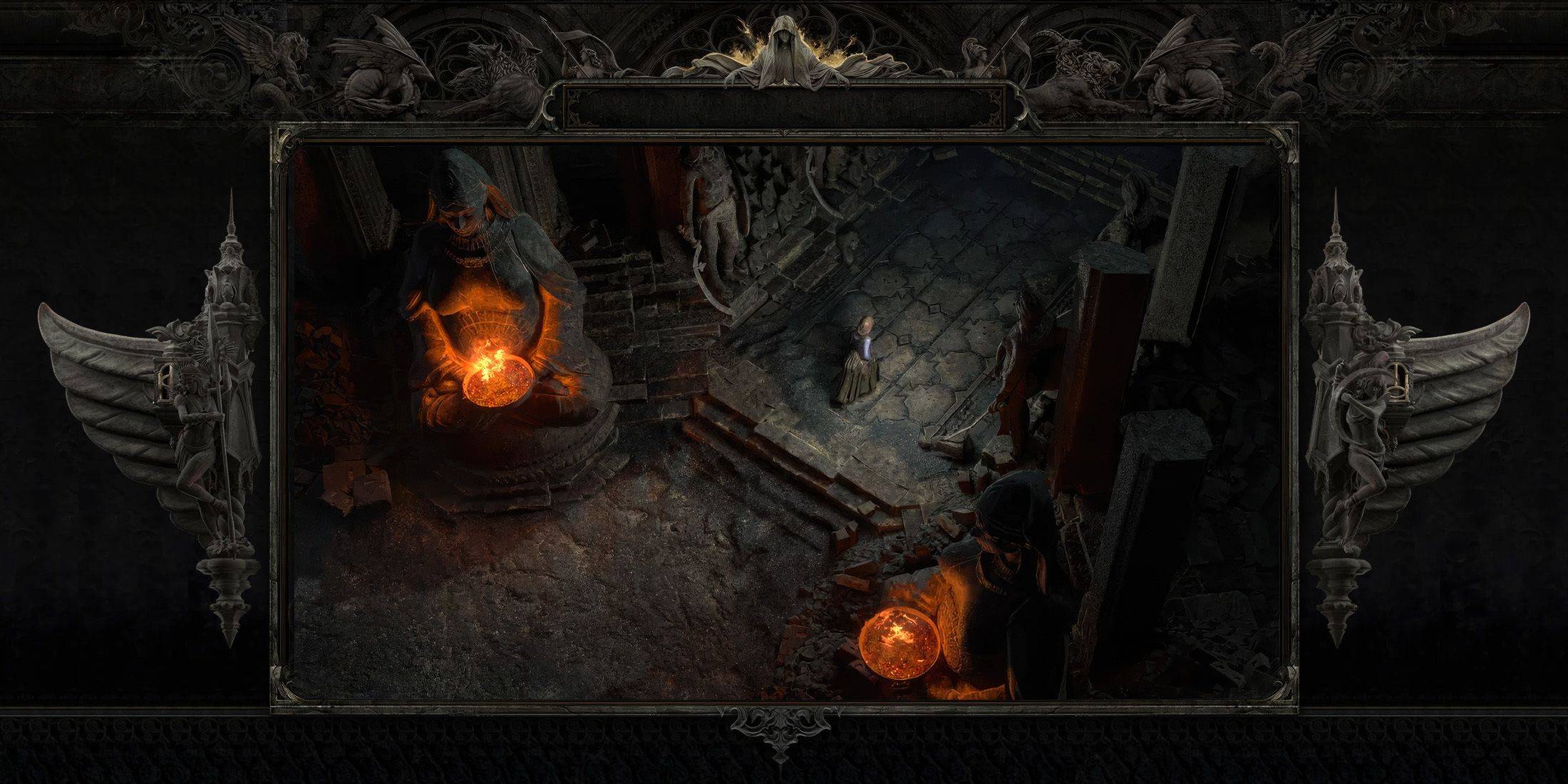The Nvidia GeForce RTX 5090's release was met with disappointment due to its marginal improvement over the RTX 4090, coupled with a significant price hike. In contrast, the Nvidia GeForce RTX 5070 Ti, despite not being much faster than its predecessor, offers a more budget-friendly option. At its base price of $749, the RTX 5070 Ti stands out as an excellent choice for 4K gaming, overshadowing the pricier RTX 5080. However, transparency is key: the RTX 5070 Ti I reviewed was an aftermarket model from MSI, priced at a steep $1,099, which exceeds the $999 RTX 5080. If you can snag the RTX 5070 Ti at its base price, it's likely the best graphics card for most gamers, particularly those eyeing 4K gaming.
Purchasing Guide
----------------The Nvidia GeForce RTX 5070 Ti hits the market on February 20, 2025, starting at $749. Be aware that this is the base price, and various models may come with higher price tags. At $749, it's a great value, but as the price increases, it becomes less competitive with the RTX 5080.
Nvidia GeForce RTX 5070 Ti – Photos
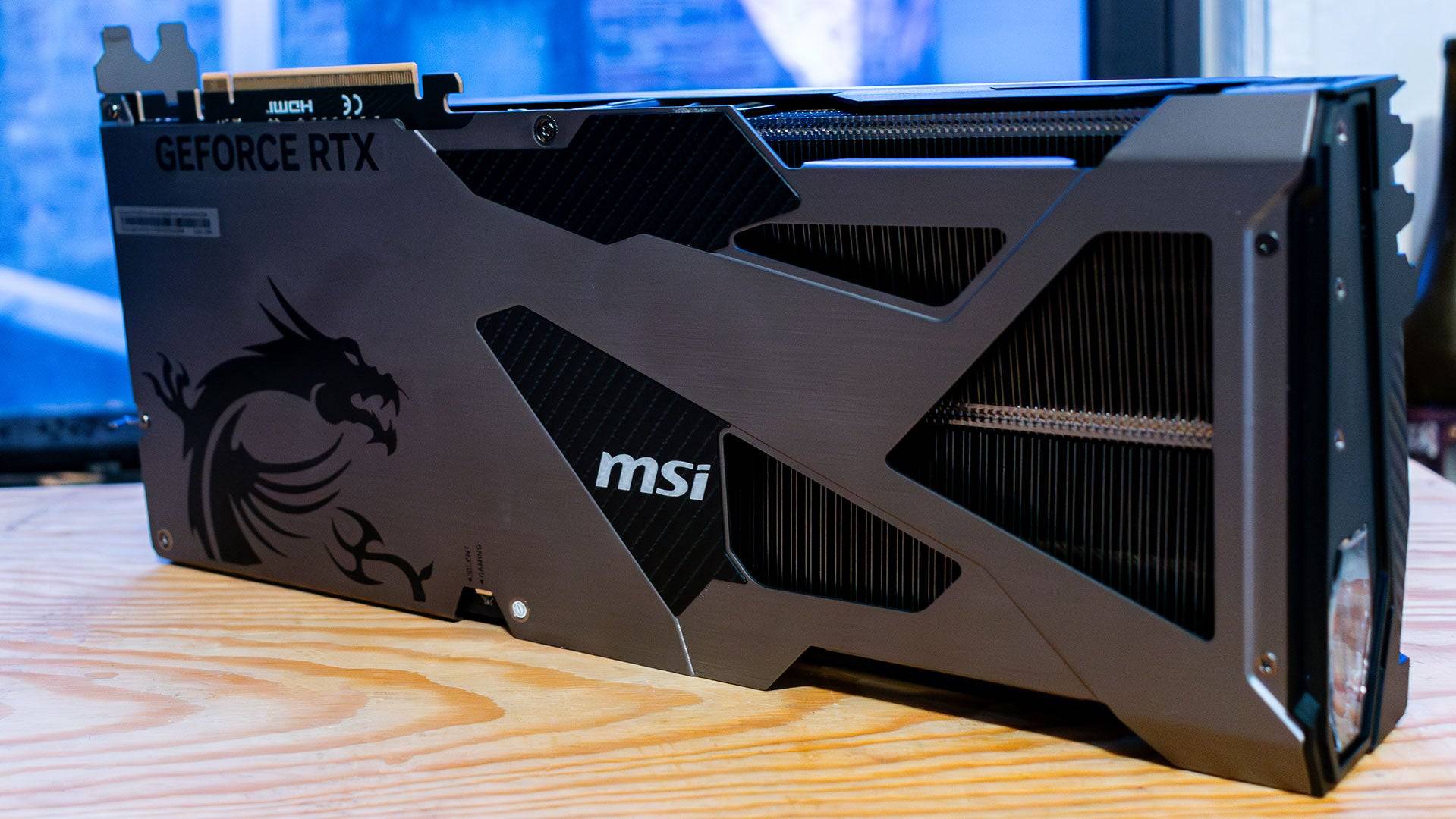
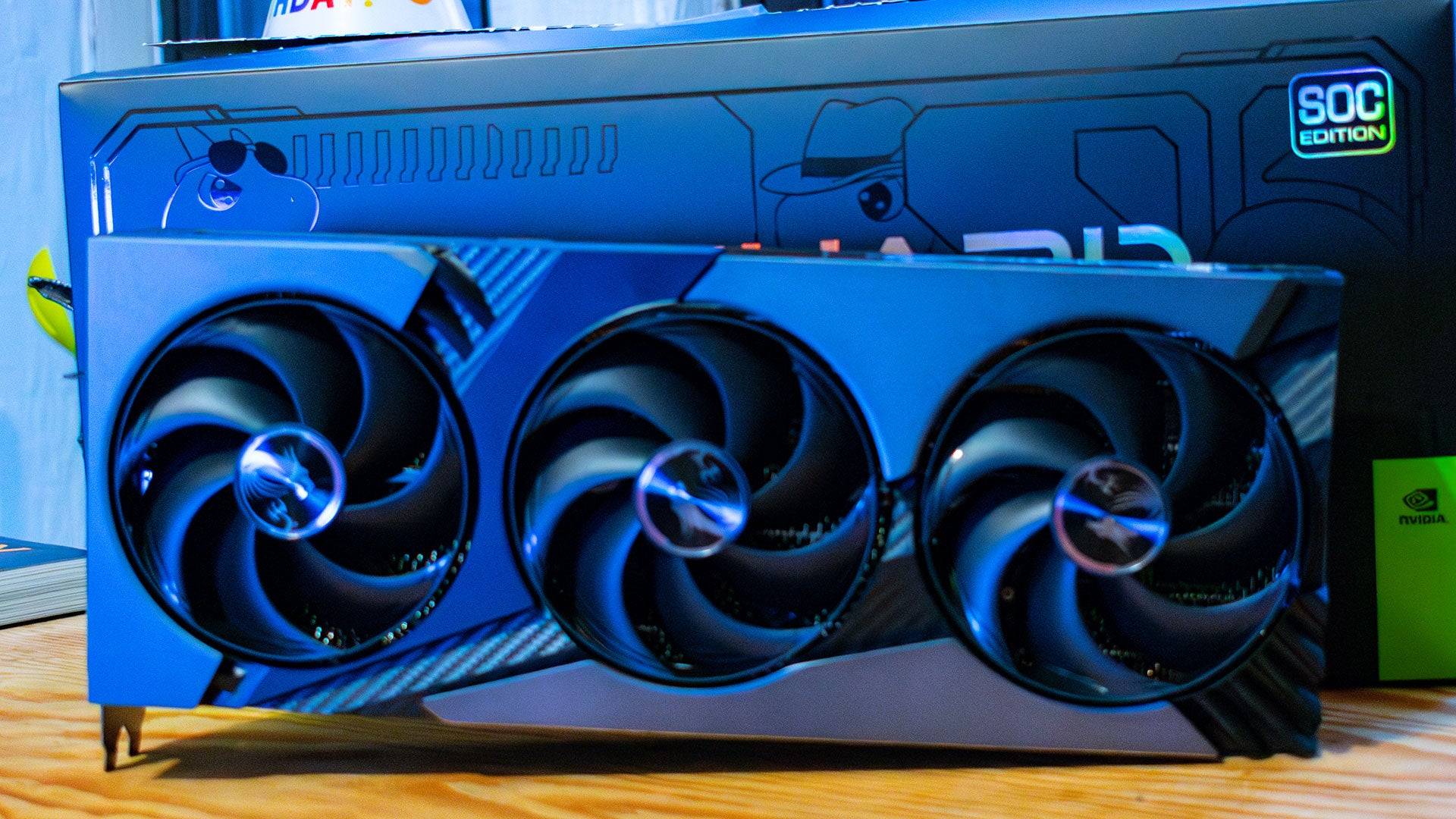 6 Images
6 Images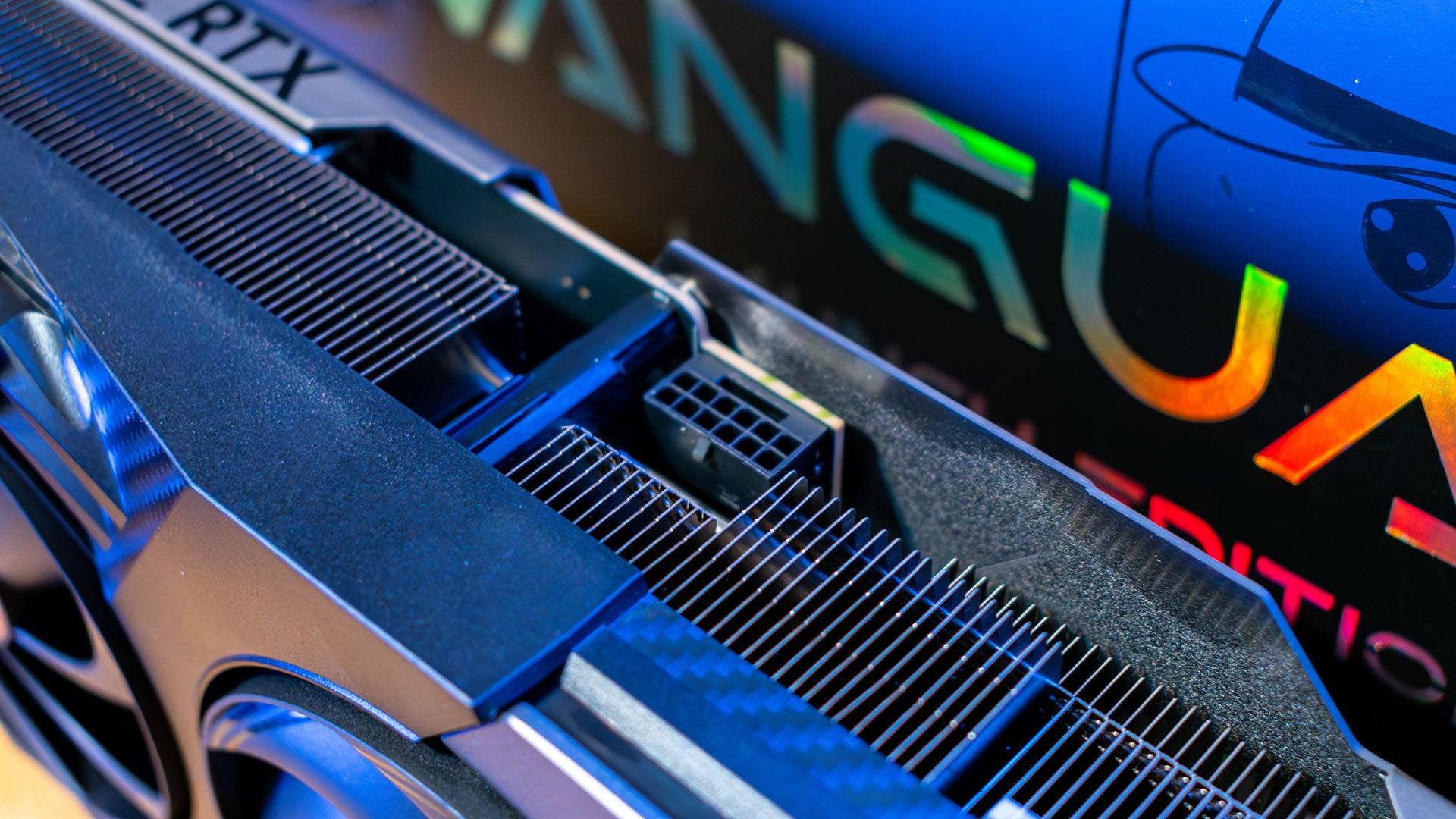
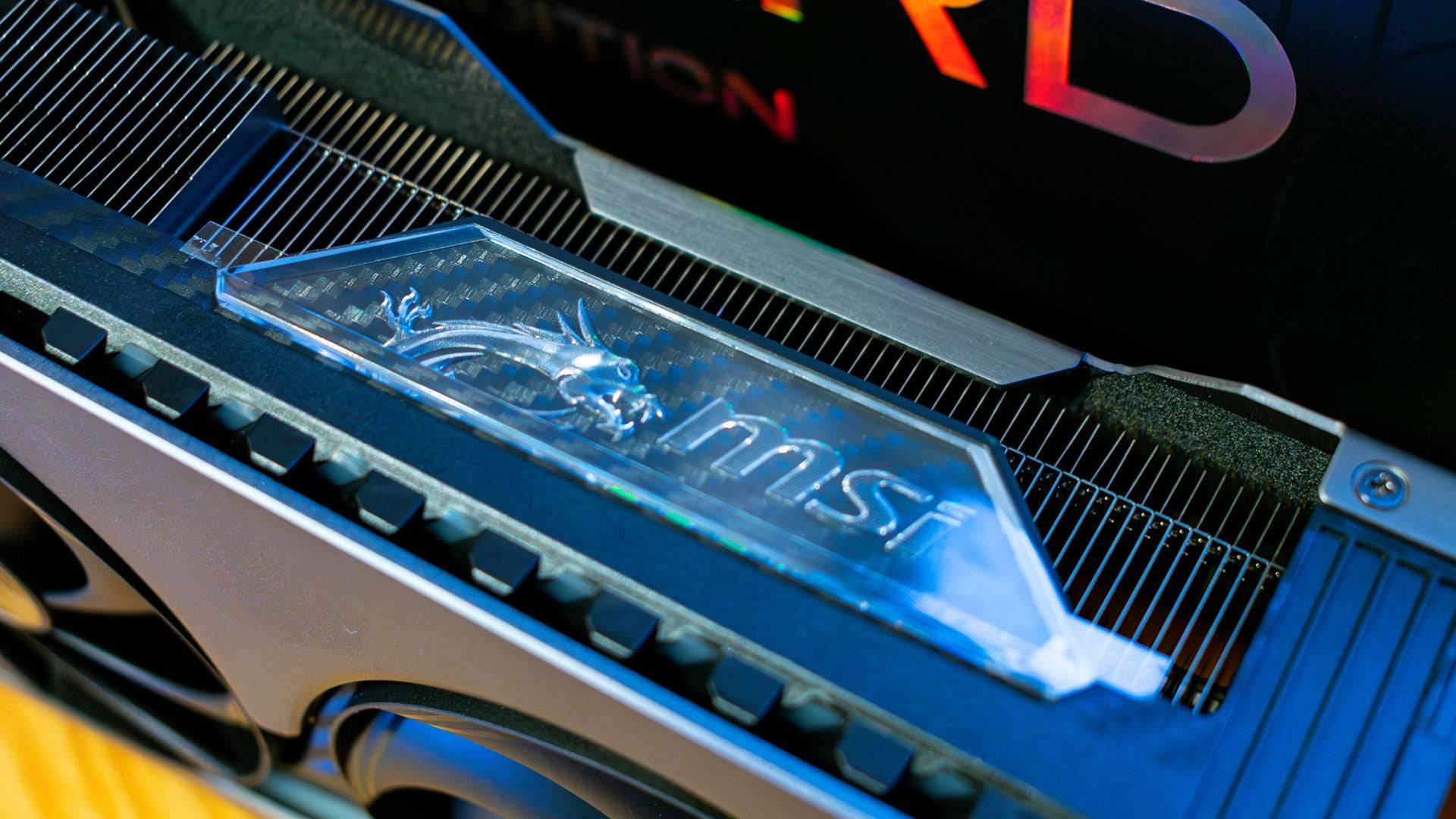
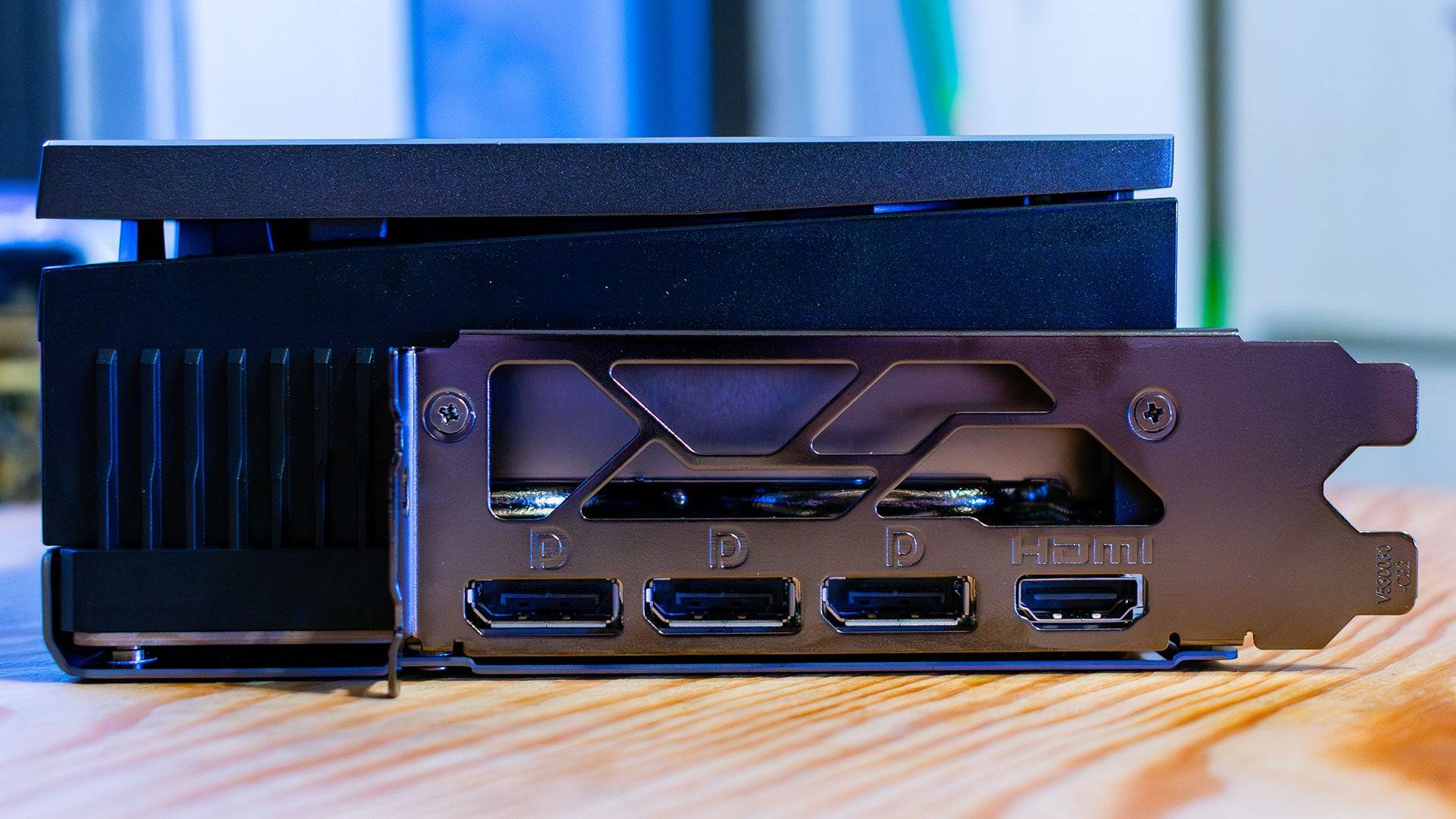

Specs and Features
------------------The Nvidia GeForce RTX 5070 Ti is the third graphics card leveraging Nvidia’s Blackwell architecture, originally designed for supercomputers powering AI models like ChatGPT. This architecture has been adapted for gaming GPUs, maintaining a strong AI focus. The RTX 5070 Ti utilizes the GB203 GPU, similar to the RTX 5080, but with 14 streaming multiprocessors (SM) disabled, resulting in 70 SMs, 8,960 CUDA cores, 70 RT cores, and 280 Tensor Cores. It also features 16GB of GDDR7 RAM, though slightly slower than the RTX 5080. The Tensor Cores, bolstered by a new AI Management Processor (AMP), enhance AI upscaling and frame generation, significantly boosting performance.
The Blackwell architecture introduces a transformative change to DLSS, now utilizing a Transformer model instead of a Convolutional Neural Network (CNN). This upgrade improves image quality by reducing ghosting and other artifacts. DLSS 4 also introduces Multi-Frame Generation (MFG), generating up to three frames per rendered frame, potentially quadrupling frame rates, although it increases latency. Nvidia's Reflex technology helps mitigate this latency increase.
With a 300W Total Board Power budget, the RTX 5070 Ti is only slightly more power-hungry than its predecessor, the RTX 4070 Ti. Nvidia suggests a 750W power supply, but for safety, an 850W PSU is recommended, especially for high-end models like the MSI Vanguard Edition reviewed here.

DLSS 4 – Is It Worth It?
========================While the RTX 5070 Ti offers a performance boost over its predecessor, Nvidia's highlight for this generation is DLSS 4, particularly its Multi-Frame Generation (MFG). This technology can significantly enhance frame rates on high-refresh-rate monitors, though it does not drastically reduce latency.
MFG works by analyzing each rendered frame and using motion data from the game engine to predict and generate new frames. This technology, though not new, has been scaled up to generate up to three frames per rendered frame, theoretically increasing frame rates up to four times. In practice, the increase varies.
For instance, in Cyberpunk 2077 with Ray Tracing Overdrive and DLSS set to performance, the RTX 5070 Ti achieves 46 fps with 43ms latency. With 2x frame generation, it jumps to 88 fps, but latency increases to 49ms. With 4x frame generation, it reaches 157 fps, with 55ms latency, marking a 3.4x frame rate increase but with higher latency.
In Star Wars Outlaws at 4K Max settings with DLSS on performance, the RTX 5070 Ti gets 67 fps. With 2x frame generation, it increases to 111 fps, and latency decreases from 47ms to 34ms, thanks to Reflex. However, with 4x frame generation, the frame rate reaches 188 fps, but latency increases to 37ms.
While MFG can make games smoother on high-refresh displays, it doesn't make them more responsive. The latency increases are minimal if you maintain a high frame rate, ensuring a smooth gaming experience without significant lag or artifacts.
Nvidia GeForce RTX 5070 Ti – Benchmarks
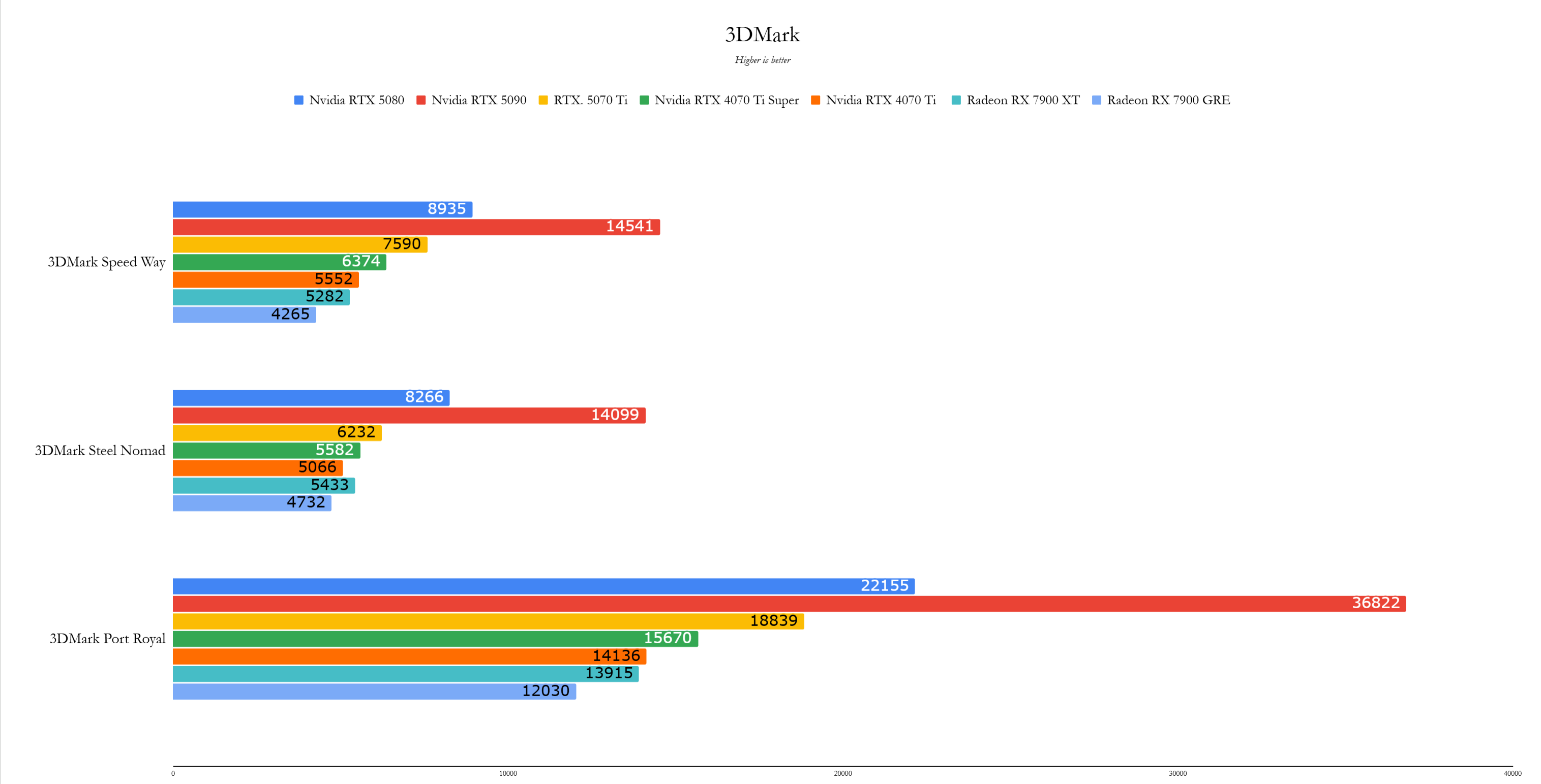
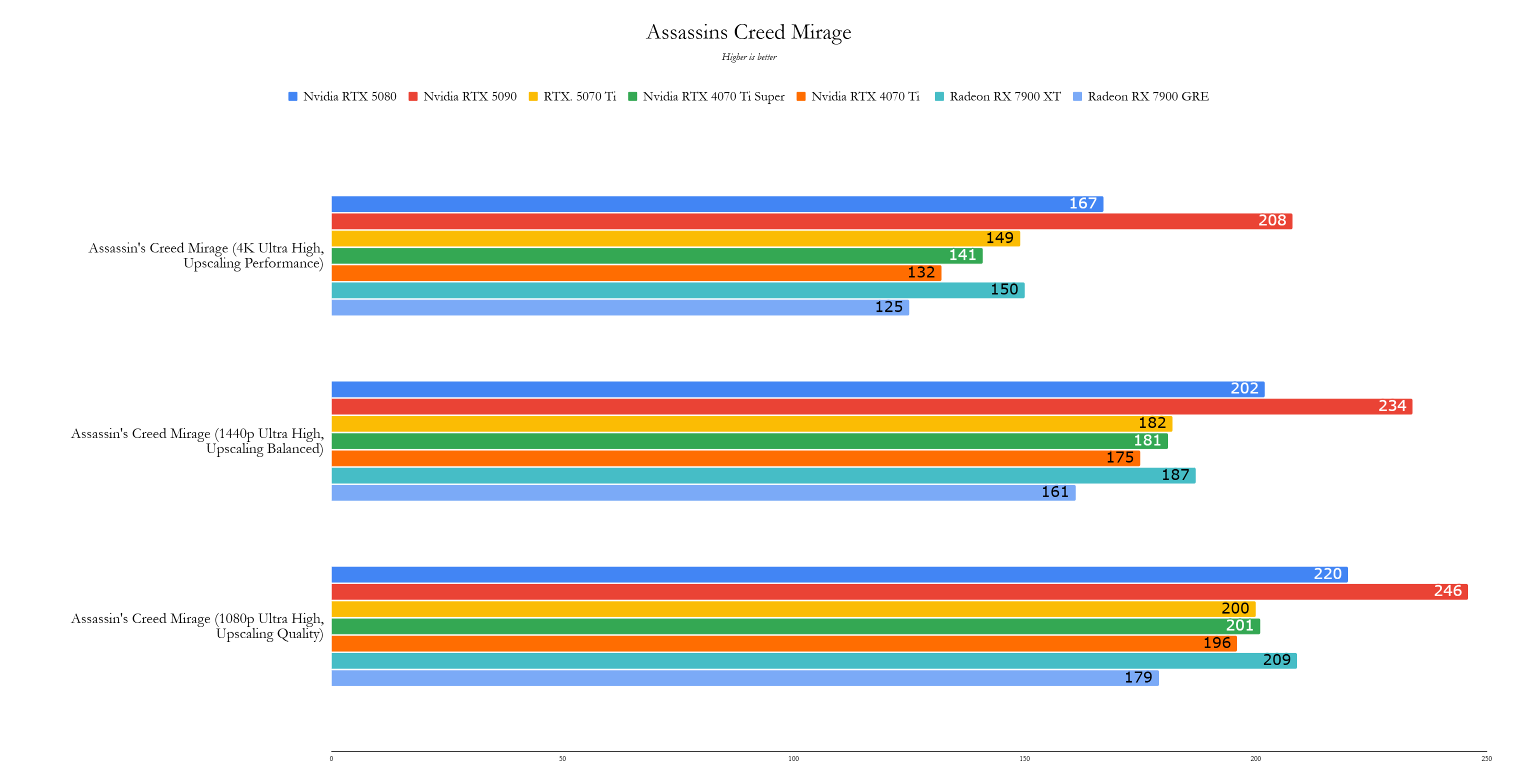 12 Images
12 Images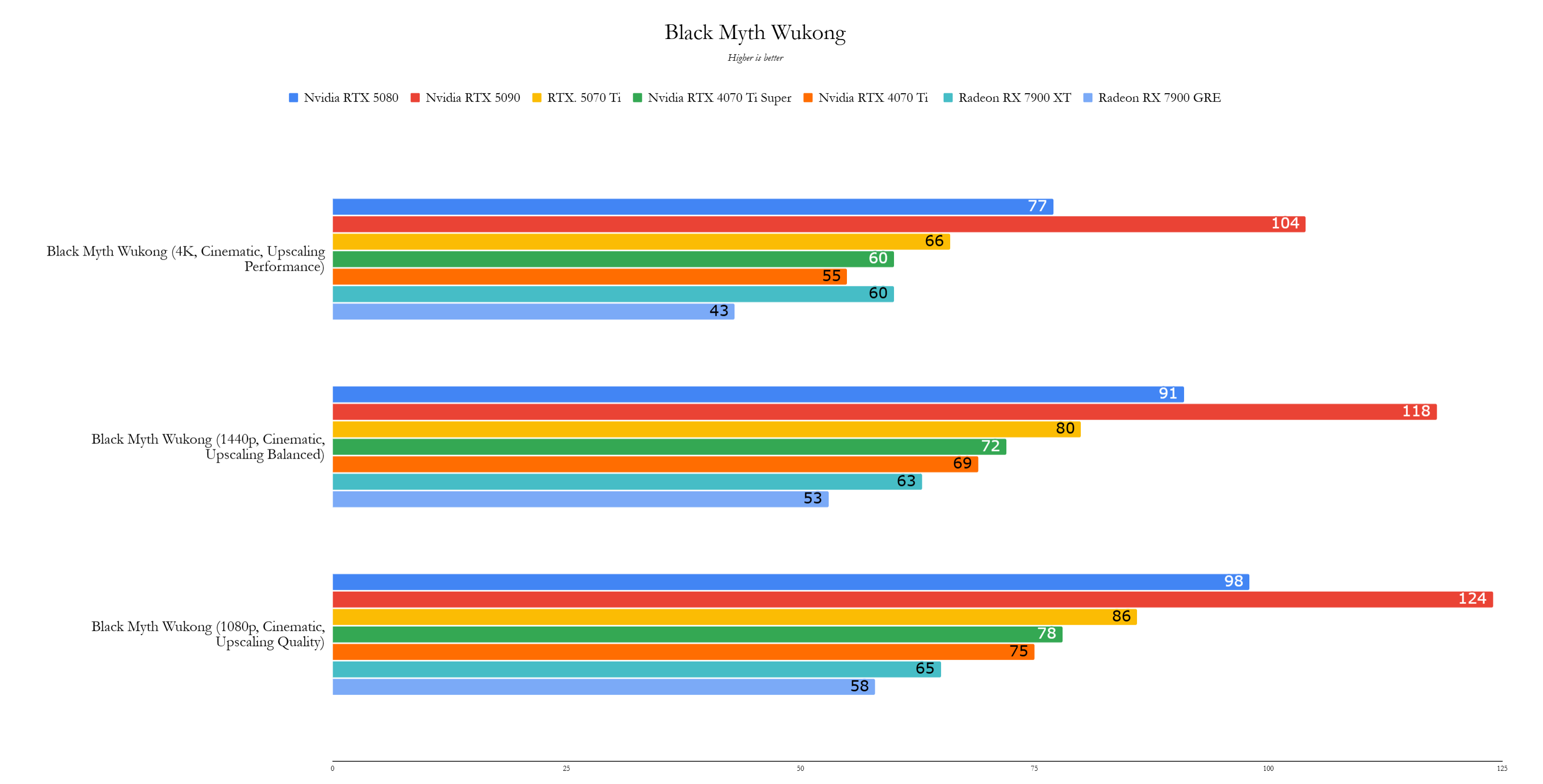
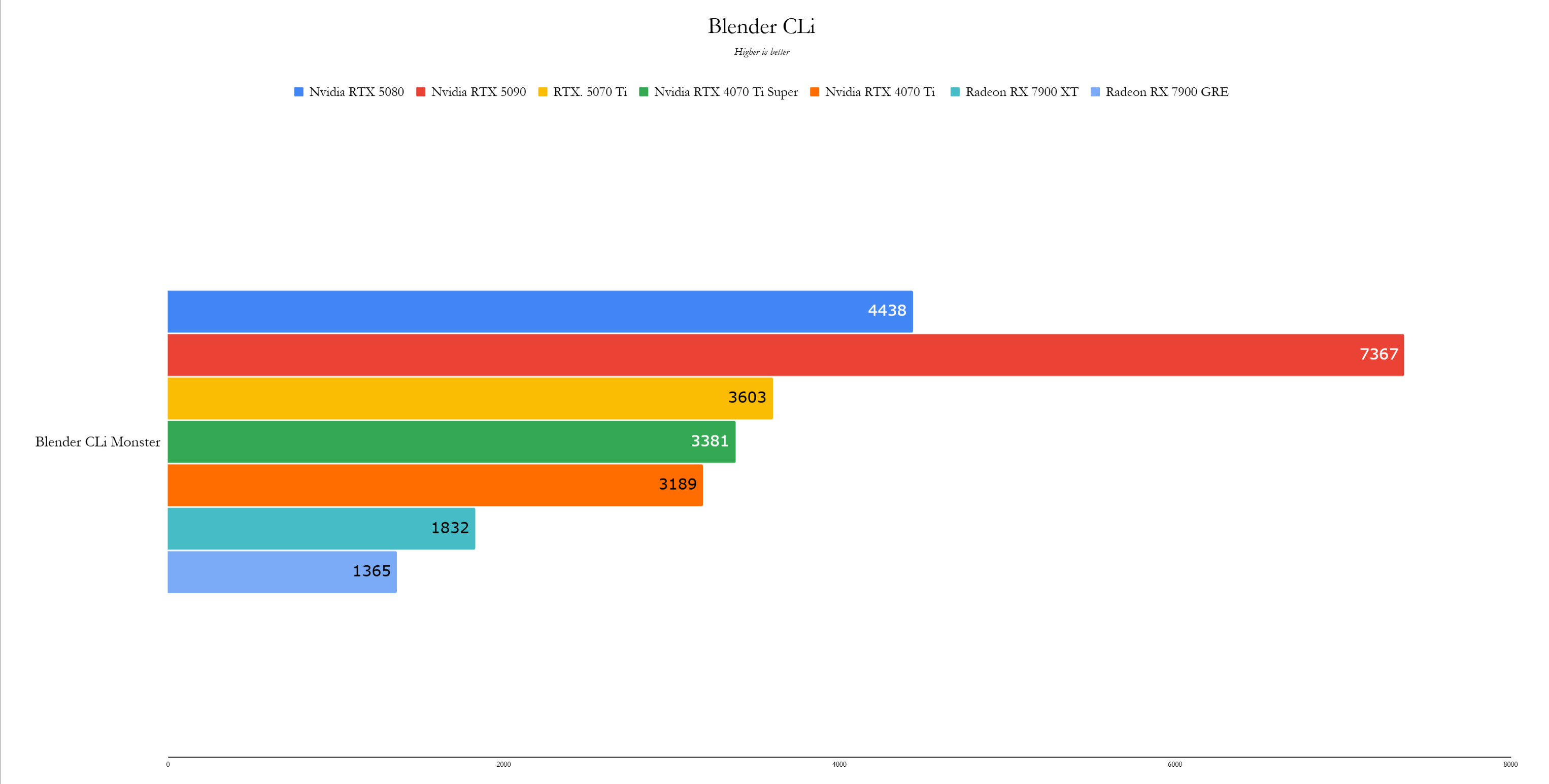
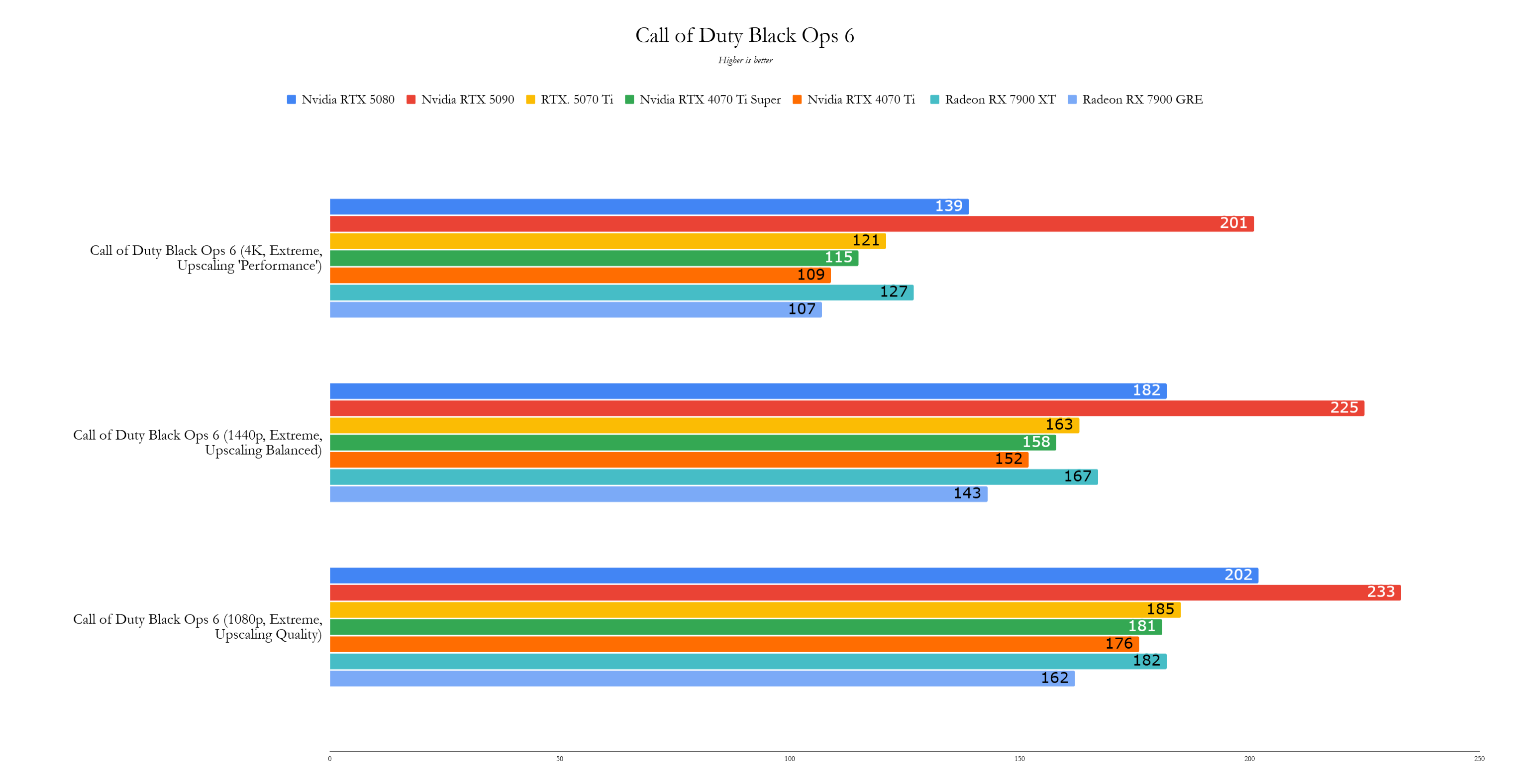
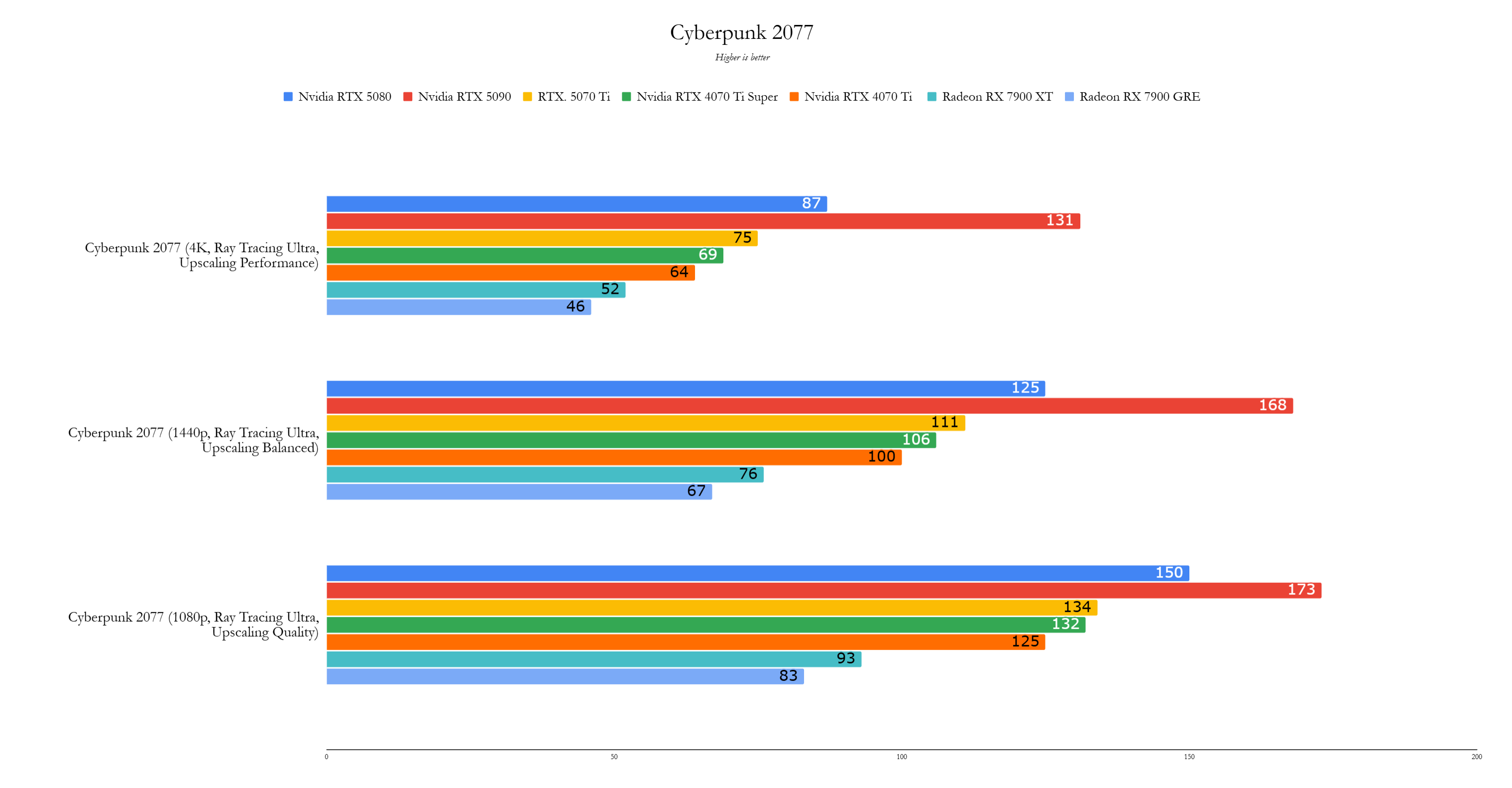
Performance
-----------At 4K, the Nvidia GeForce RTX 5070 Ti outperforms the RTX 4070 Ti Super by about 11% and the RTX 4070 Ti by 21%. This generational uplift is more significant than that of the RTX 5080, positioning the RTX 5070 Ti as the best value graphics card of this generation. It consistently exceeds 60 fps at 4K, even in demanding titles like Black Myth Wukong and Cyberpunk 2077.
Test System
CPU: AMD Ryzen 7 9800X3D Motherboard: Asus ROG Crosshair X870E Hero RAM: 32GB G.Skill Trident Z5 Neo @ 6,000MHz SSD: 4TB Samsung 990 Pro CPU Cooler: Asus ROG Ryujin III 360Note: The RTX 5070 Ti tested was the MSI Vanguard SOC model, but it was run at stock settings to reflect general performance at the $749 MSRP. All tests were conducted on the latest game versions and drivers, with no frame generation and appropriate upscaling technologies used for each card.
In 3DMark Speed Way, the RTX 5070 Ti scores 7,590 points, a 19% increase over the RTX 4070 Ti Super's 6,374 and a 36% jump over the RTX 4070 Ti's 5,552. In Port Royal, it achieves 18,839 points, compared to 15,670 and 14,136 from the 4070 Ti Super and 4070 Ti, respectively.
In games, the RTX 5070 Ti shows varying improvements. In Call of Duty: Black Ops 6 at 4K Extreme, it achieves 121 fps, a modest 5% improvement over the RTX 4070 Ti Super's 115 fps. In Cyberpunk 2077 with Ray Tracing Ultra, it leads by 9% over the 4070 Ti Super and 17% over the 4070 Ti, maintaining 75 fps at 4K.
Metro Exodus: Enhanced Edition, without upscaling, sees the RTX 5070 Ti at 48 fps, slightly ahead of the 4070 Ti Super's 45 fps. Red Dead Redemption 2 is an anomaly, with the RTX 5070 Ti at 113 fps, 2% slower than the 4070 Ti Super's 115 fps.
Total War: Warhammer 3, without ray tracing or upscaling, showcases a 15% improvement over the 4070 Ti Super and 30% over the 4070 Ti, achieving 78 fps at 4K max settings. In Assassin’s Creed Mirage, the RTX 5070 Ti reaches 149 fps, surpassing the 4070 Ti Super's 141 fps and the 4070 Ti's 132 fps.
Black Myth Wukong, a demanding title, sees the RTX 5070 Ti at 66 fps, a 10% improvement over the 4070 Ti Super's 60 fps. Forza Horizon 5, favoring high frame rates, sees the RTX 5070 Ti at 152 fps, a 15% and 21% improvement over the 4070 Ti Super and 4070 Ti, respectively, and 10% over the Radeon RX 7900 XT.
In today's market, even mid-range graphics cards like the RTX 5070 Ti are capable of 4K gaming. At its starting price of $749, it offers the best value, particularly for those with 4K displays. It's the first RTX 5000 card to provide a significant performance uplift over its predecessor at a lower price than the RTX 4070 Ti's $799.

 Latest Downloads
Latest Downloads
 Downlaod
Downlaod




 Top News
Top News